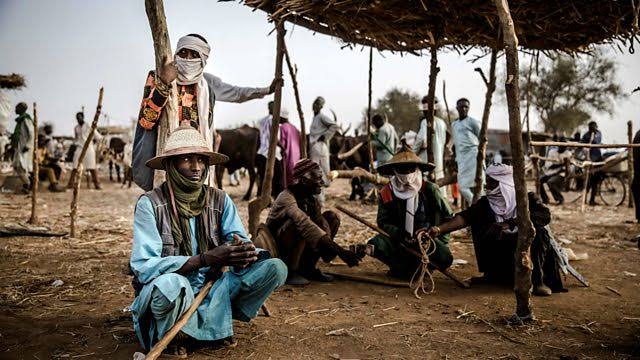The Hausa-Fulani and Muslim community of Southern Kaduna have debunked allegations of genocide against the Christian natives, as well as claims that H
The Hausa-Fulani and Muslim community of Southern Kaduna have debunked allegations of genocide against the Christian natives, as well as claims that Hausa-Fulani Muslims are minority and settlers in the area.
Reacting to the spate of killings in the area, the Hausa-Fulani community said facts had been distorted for too long against them, claiming the “Christian militia of Southern Kaduna have grand plan to eliminate Muslims from the area.”
The Hausa-Fulani community made up of Coalition of United Muslim Group, Kaduna state, Muslim Youth Foundation of Southern Kaduna, Nasihatu Ahlizzaman Southern Kaduna Muslim Forum and Zumunta Youth Development, Kasuwan Magani, said Muslims constituted 40% of the Southern Kaduna population, and Hausa-Fulani were majority of the about 30 tribes in the area.
Leader of the group, Imam Kabir Kasim Kafanchan, also claimed that the Hausa Fulani were the original owners of the area called Southern Kaduna. He said major Christian tribes laying claims to the area originally migrated from other northern states like Kano, Bauchi and Taraba states.
Imam Kafanchan asked the Kaduna State House of Assembly to enact a law stopping Hausa-Fulani from being referred to as settlers in Southern Kaduna, while calling on the state government to create chiefdoms for them in places like Kasuwan Magani, Kachia and Zango Urban, which he said were founded by the Hausa-Fulani.
“There are about 30 ethnic groups in the eight LGAs that make us Southern Kaduna, among which include: Hausa-Fulani, Jaba (Ham), Atyap (Kataf), Kadara (Adara), Baju (Kaje) in addition to Nigerians from other parts of the country. The Muslims constitute about 40% while the Christians have 60% of the population.
“Most of the major towns in Southern Kaduna were founded by Hausa Fulani. For example, Zango, Kachia, Unguwan Rimi, Zankuwa, Kagarko, Jere and Jama’a (Kafanchan). Hausa-Fulani are the largest single tribe in Southern Kaduna. In spite of this, they are always targets. Muslims are always referred to as settlers, while it is historically on record that Southern Kaduna was founded by Fulani tribe called KACHECHERE.
“The tribes in Southern Kaduna migrated from other parts of the country. Some came in the morning, some in the afternoon and others in the evening. The Bajju or Kaje migrated from Bauchi, Atyap (Kataf) migrated from Kargi – the East part of Zaria; Kaninkon and Kagoma from Taraba; Jaba and Koro from Kano etc.
“It is also on record that, the ancient town of Kauru and Kajuru were as old as Zaria city founded by Hausa-Fulani. While Jema’a emirate was founded by the Hausa-Fulani in 1810, Zango town which was also founded by Hausa-Fulani, has been in existence right from West African Trans Sahara trade. Kagarko and Jere were also founded by the Hausa-Fulani as well as Kachia.
“We hereby debunk (sic) the claims of the Southern Kaduna People’s Union (SOKAPU) of its personal interest, that its members are the only indigenes of Southern Kaduna. The 2011 post-election violence which led to the killings of over 2,000 persons, many of them transhumance Fulani herdsmen, metamorphosed into subsequent skirmishes and recent conflicts in the area.
“We wish to remind the world that, 2011 post-election violence was planned to eliminate the Muslims in Southern Kaduna area. We cannot easily forget the genocide that took place in Zonkwa, Unguwan Rimi, Matsirga, Kagoro, Madakiya, Kasuwan Magani, Kachia, Gidan Maga, Kwoi, Kafanchan, Maraban Rido, Gonin Gora, Chawai. It is sad to note that thousands of Muslims were killed and massacred in cold blood at Southern Kaduna.
“The sponsors and perpetrators of these killings should be traced and be brought to book to serve as deterrent to others. Political elite, religious leaders and elders of Southern Kaduna should stop playing politics with the lives and properties of the Muslims in Southern Kaduna,” the Hausa-Fulani further said.
In a reaction to the call by the Hausa/Fulani community, SOKAPU National Chairman, Jonathan Asake, described the demands as outrageous and inordinate.
